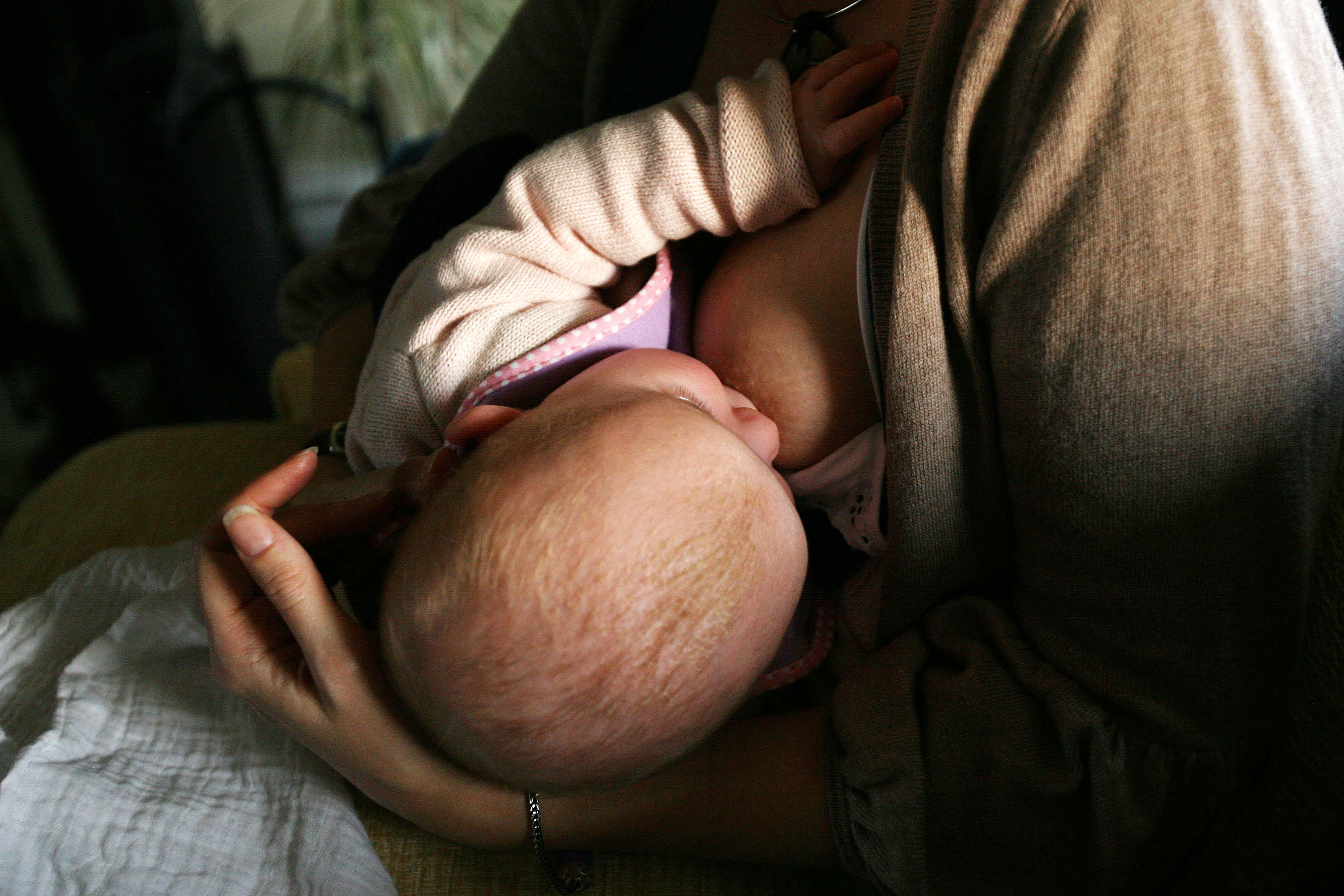Breast and mixed fed children less likely to have learning disability – study
The findings suggest that having breastmilk in the first few weeks of life may help to reduce the risk of having special educational needs.

Your support helps us to tell the story
From reproductive rights to climate change to Big Tech, The Independent is on the ground when the story is developing. Whether it's investigating the financials of Elon Musk's pro-Trump PAC or producing our latest documentary, 'The A Word', which shines a light on the American women fighting for reproductive rights, we know how important it is to parse out the facts from the messaging.
At such a critical moment in US history, we need reporters on the ground. Your donation allows us to keep sending journalists to speak to both sides of the story.
The Independent is trusted by Americans across the entire political spectrum. And unlike many other quality news outlets, we choose not to lock Americans out of our reporting and analysis with paywalls. We believe quality journalism should be available to everyone, paid for by those who can afford it.
Your support makes all the difference.Children who were exclusively breastfed or fed a mixture of formula and breastmilk for the first six to eight weeks of life are less likely to experience special educational needs or learning disabilities, according to a study.
Led by the University of Glasgow and published in the Plos Medicine journal, the research studied data from 190,000 children to understand the impact of early life feeding on later development.
The findings suggest that having breastmilk in the first few weeks of life may help to reduce the risk of having special educational need, or the learning disabilities and difficulties that often cause this.
But some have questioned the methodology of the study, saying it sends an “offensive” and “unhelpful” message around responsibility to mothers.
We have significant concerns around the methodology of this study
Clare Murphy, chief executive of the women’s healthcare charity, BPAS, said: “This study implies to women parenting children with special educational needs that how they fed them may explain their challenges.
“The reality is much more complex. Boiling it down to feeding choices sends an offensive and unhelpful message around responsibility to mothers, and we urge extreme caution as to how the findings of this study are disseminated.”
Dr Rosie McNee, co-founder of the infant feeding charity Feed, said: “We have significant concerns around the methodology of this study.
“We know children’s educational needs correspond to their parents’ educational needs, something which parents have no control over and yet, this paper did not account for this fundamental concept.
“This is in part due to the data banks used for infant feeding research which do not capture important information.
“Suggesting causation when all we have is an association, easily explained by factors that have previously been well evidenced, does not help either women or children facing significant challenges at school.”
World Health Organisation guidance recommends that babies are breastfed for the first six months.
However, many women struggle to exclusively breastfeed for this long.
This study provides evidence that a shorter duration of non-exclusive breastfeeding may still be beneficial for a child’s later learning development.
Researchers looked at the health and educational data for 191,745 children born in Scotland from 2004 onwards.
They also looked at who attended a mainstream or special educational needs school between 2009 and 2013.
Of those included in the study, 66.2% of children were formula fed, 25.3% were breastfed, and only 8.5% were mixed fed for the first six to eight weeks.
Overall, 12.1% of children in this study had a special educational need.
But when compared with formula feeding, a history of early-life mixed feeding and exclusive breastfeeding were both associated with a decrease in the risk of having a special educational need – around 10% and 20% less likely, respectively.
Exclusively breastfed children were also less likely to have emotional or behavioural difficulties (around 20% less likely) and physical health conditions (around 25% less likely).
Children with special educational needs on average experience lower educational attainment, higher rates of school absenteeism and exclusion, and higher rates of bullying and maltreatment, which can all further impact on their physical and mental health and wellbeing.
Dr Michael Fleming, who led the study at the University of Glasgow’s School of Health and Wellbeing, said: “We know that many women struggle to exclusively breastfeed for the full six months recommended by the WHO, however our study provides evidence that a shorter duration of non-exclusive breastfeeding could nonetheless be beneficial with regards to a child’s learning development.
“The results of this study suggest that feeding method in infancy could be a modifiable risk factor for the causes of special educational need, which in turn has the potential to help reduce the burden for affected children, their families and wider society.”
Commenting on the study, Dr Danya Glaser, Visiting Professor, UCL, and honorary consultant child and adolescent psychiatrist at Great Ormond Street Hospital for Children, said: “Correlations are not causal. There could be factors other than no breast feeding which are associated with special educational needs, such as low socio-economic status.
“There is also a correlation between no breast feeding and low socio-economic status. This study has not adequately controlled for this.”